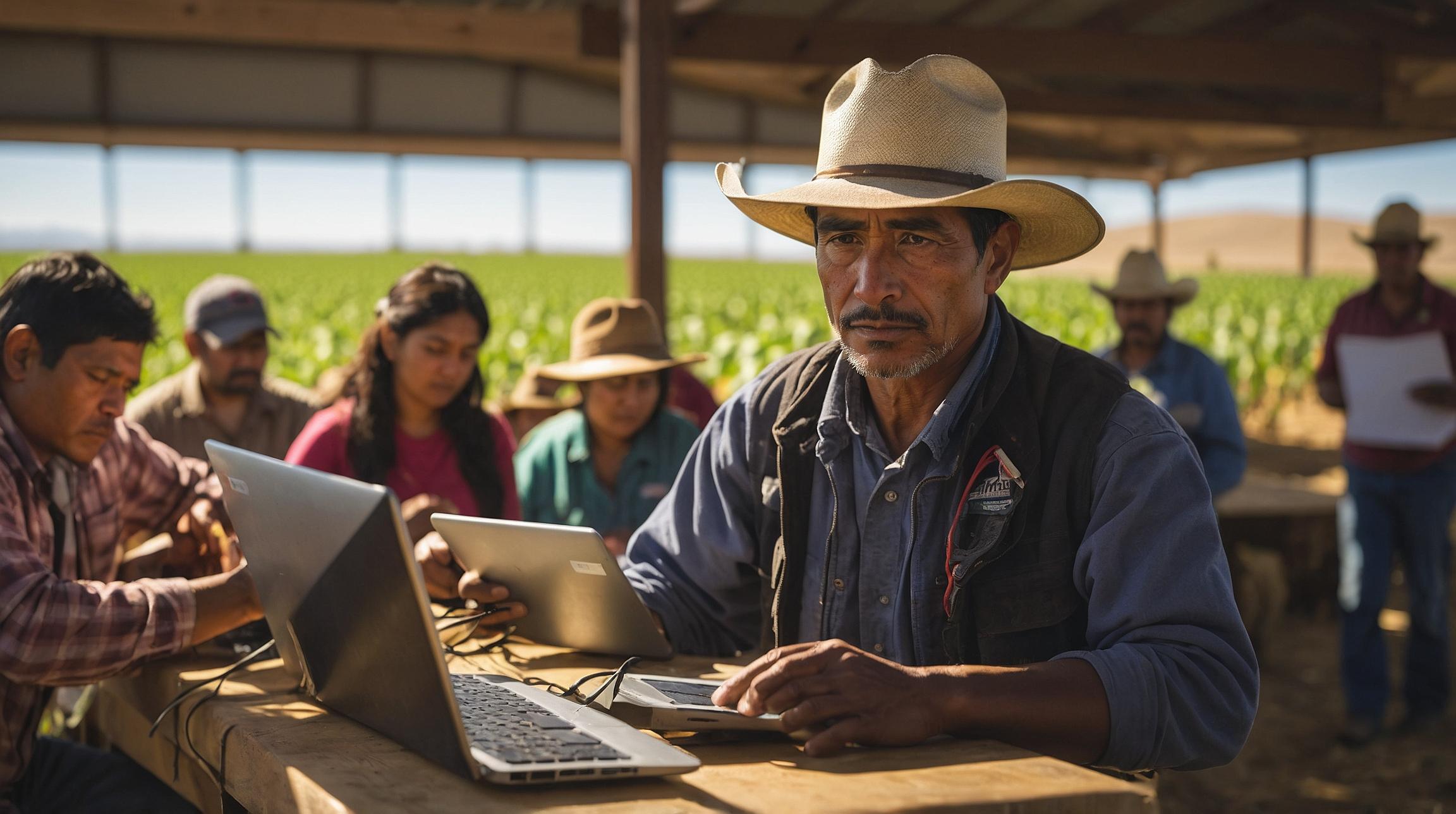A New Era for Agriculture Workers in Central Valley
A transformative initiative in California's Central Valley is set to revolutionize the agricultural industry's workforce by equipping farmworkers with essential technology skills. Angel Cortez, a 43-year-old Mexican immigrant, epitomizes the program's impact. With a background in agriculture and hospitality, Cortez found traditional labor challenging due to a past injury. Seeking a career change, he embraced an innovative certificate program offered by Merced College, which helps farmworkers transition to technology-driven roles.
Bridging the Skills Gap
This program is part of a broader effort by the Central Valley Community Foundation, supported by a $65.1 million grant from the federal Economic Development Administration, aiming to modernize farming practices. By 2026, the program plans to prepare 8,400 workers for higher-tech, higher-paying jobs. This shift comes as the agricultural sector faces increased labor costs and a dwindling labor force, necessitating a move towards automation and technology.
The Future of Farm Work
As farming evolves, workers will need to adapt to new roles involving robotic harvesters and advanced farming techniques like hydroponic systems. Marco Cesar Lizarraga from La Cooperativa Campesina de California emphasizes that future farmworkers will become operators of sophisticated equipment, a sentiment echoed by Cannon Michael of Bowles Farming Co., who highlights the need for automation to create better jobs.
Educational Pathways to Success
Developed in collaboration with agricultural leaders, the certificate program focuses on essential skills such as digital literacy and regulatory knowledge. Courses cover computer usage, email communication, and pesticide regulation, progressing to high-tech equipment operation. This competency-based education model allows students to study flexibly, demonstrating mastery of skills rather than traditional grading.
Comprehensive Support for Students
The program is accessible through several community colleges, including Merced, Madera, and Fresno City, offering courses in English and Spanish. It includes support such as registration assistance and access to laptops, ensuring participants, regardless of their background, can succeed. Cortez, reflecting on his progress, notes newfound confidence in using technology and sees expanding career opportunities ahead.
Realities and Challenges
Despite the program's promise, Antonio De Loera-Brust from the United Farm Workers highlights that not all farmworkers will transition to tech-based roles. He stresses the importance of improving existing farm jobs with better wages and conditions, acknowledging the program's benefits while recognizing its limitations in addressing farmworker poverty. Empowering farmworkers with technology skills is a crucial step, but comprehensive reforms in agriculture are equally essential for long-term improvement.













